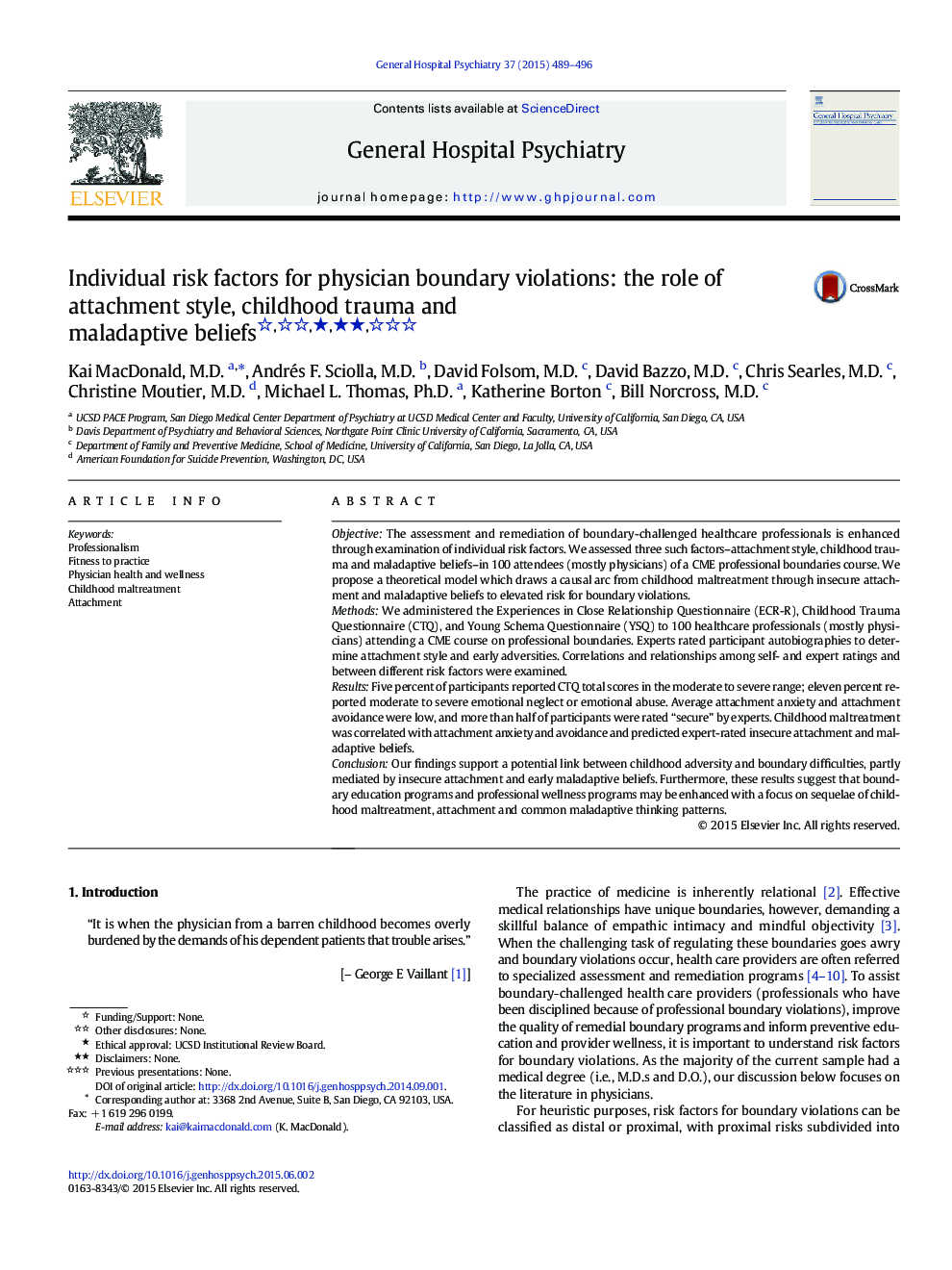| کد مقاله | کد نشریه | سال انتشار | مقاله انگلیسی | نسخه تمام متن |
|---|---|---|---|---|
| 6081686 | 1205670 | 2015 | 8 صفحه PDF | دانلود رایگان |

ObjectiveThe assessment and remediation of boundary-challenged healthcare professionals is enhanced through examination of individual risk factors. We assessed three such factors--attachment style, childhood trauma and maladaptive beliefs--in 100 attendees (mostly physicians) of a CME professional boundaries course. We propose a theoretical model which draws a causal arc from childhood maltreatment through insecure attachment and maladaptive beliefs to elevated risk for boundary violations.MethodsWe administered the Experiences in Close Relationship Questionnaire (ECR-R), Childhood Trauma Questionnaire (CTQ), and Young Schema Questionnaire (YSQ) to 100 healthcare professionals (mostly physicians) attending a CME course on professional boundaries. Experts rated participant autobiographies to determine attachment style and early adversities. Correlations and relationships among self- and expert ratings and between different risk factors were examined.ResultsFive percent of participants reported CTQ total scores in the moderate to severe range; eleven percent reported moderate to severe emotional neglect or emotional abuse. Average attachment anxiety and attachment avoidance were low, and more than half of participants were rated “secure” by experts. Childhood maltreatment was correlated with attachment anxiety and avoidance and predicted expert-rated insecure attachment and maladaptive beliefs.ConclusionOur findings support a potential link between childhood adversity and boundary difficulties, partly mediated by insecure attachment and early maladaptive beliefs. Furthermore, these results suggest that boundary education programs and professional wellness programs may be enhanced with a focus on sequelae of childhood maltreatment, attachment and common maladaptive thinking patterns.
Journal: General Hospital Psychiatry - Volume 37, Issue 5, SeptemberâOctober 2015, Pages 489-496